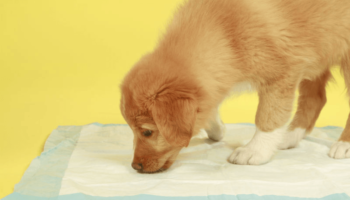Do you have a pregnant cat at home? Do not stress. Well, cats having kittens is nothing new. You will require a broad knowledge base to work your way around. Ensure that your cat is having a nutritious diet and is comfortable and healthy during her pregnancy. Caring for a pregnant cat can be quite a challenging task especially for first timer pet owners.
Let us discuss the steps about how to care for a pregnant cat.
Initial phase of her pregnancy
In the initial stage of her pregnancy, your cat will start to gain weight. This weight gain will not be reflected much at this time. Her appetite is going to increase significantly. Do not monitor her weight now. This is because you have to remember that she is eating not only for herself but for her yet to be born kittens.
Additional nutrition
Just like human beings, cats exhibit signs of morning sickness and cravings. However, if you observe your cat and see her eating dirt of any kind, you may want to check with your vet. She may have developed a condition called pica which arises due to deficiency of minerals or an imbalance in her nutritional diet. She may need an additional nutrition comprising of supplements along with her daily diet.
Introduction of protein elements
Let her enjoy the same kind of food she used to enjoy as before. Start introducing protein elements into her meals. You may switch her to a special food designed for growing cats. Continue that same diet until she is done with her weaning. Add good quality canned food or feed her a diet rich in sardines. Since by this time, her abdominal space is taken up by her kittens she will require smaller portion size meals at more frequent intervals. Make water available to her at all times.
May require help for her daily activities
Due to her inability to control bladder pressure now, it will not be possible for her to go to the litter box always. Do not scold her if she fails to go to the litter box on time. Your cat may be requiring some help to clean her bottom if her weight gain is preventing her from accessing it. A soft tissue or a moistened cloth is adequate for this purpose. However, ensure that she allows you to do that work.
Provide her nesting space
There may be some spillage of milk from the nipples of your cat in the final weeks of her pregnancy. Create a quiet corner for your cat. Provide her nesting space where she can give birth to her babies. Otherwise, she will be restless about the whole matter. Prepare a box laden with soft towels and blankets. Select materials that can be cleaned or replaced easily. Guide your cat to the location of the box.
Make sure that she is comfortable
Do not be surprised, if she does not want to utilize that space. Let her choose her nesting space. Ensure that she is comfortable with the space chosen by her. Even if you do not approve of her nesting space, do not try to move her. If your cat feels threatened or stressed, she might get a panic attack, and that will lead to an unnecessary life-threatening situation for her or her kittens.
Calm environment
The house should be kept calm to the extent possible. Do not get in the way of your cat, especially when she is giving birth to her kittens. Just observe and make sure that everything is in place. Move your cat and her kittens to a clean place once they are relaxed. Ensure that they have a beautiful, comfortable place for their bedding.
Taking care of the frail kittens
Your cat may be experiencing some post birth complications. It is a right decision to get your kittens examined by the vet after the queening process is over. The kittens may wind up moving around the house. You have to keep in mind not to touch them continuously because at this point in time the kittens are in a delicate frame of health. The immune systems of these kittens are frail. Their bones are very fragile too.
Keep the cat and her kittens warm
Ensure that the cat and her kittens are warm. The mother cat will use her body heat to keep her kittens warm. You have to be aware that your cat will have a very protective attitude towards her kittens and she will be violently possessive about her kittens.
Extra safeguard measures for your cat
Do not use any antiseptic solution on the cats. These can be toxic to them and may end up burning their skin. Always consult the veterinarian when you are planning to use any new medications. Cats can become pregnant once again, within as little as a gap of two weeks but more than a gap of eight to ten weeks. It is a wise decision to keep you cat confined within the safety of your house during this period.






